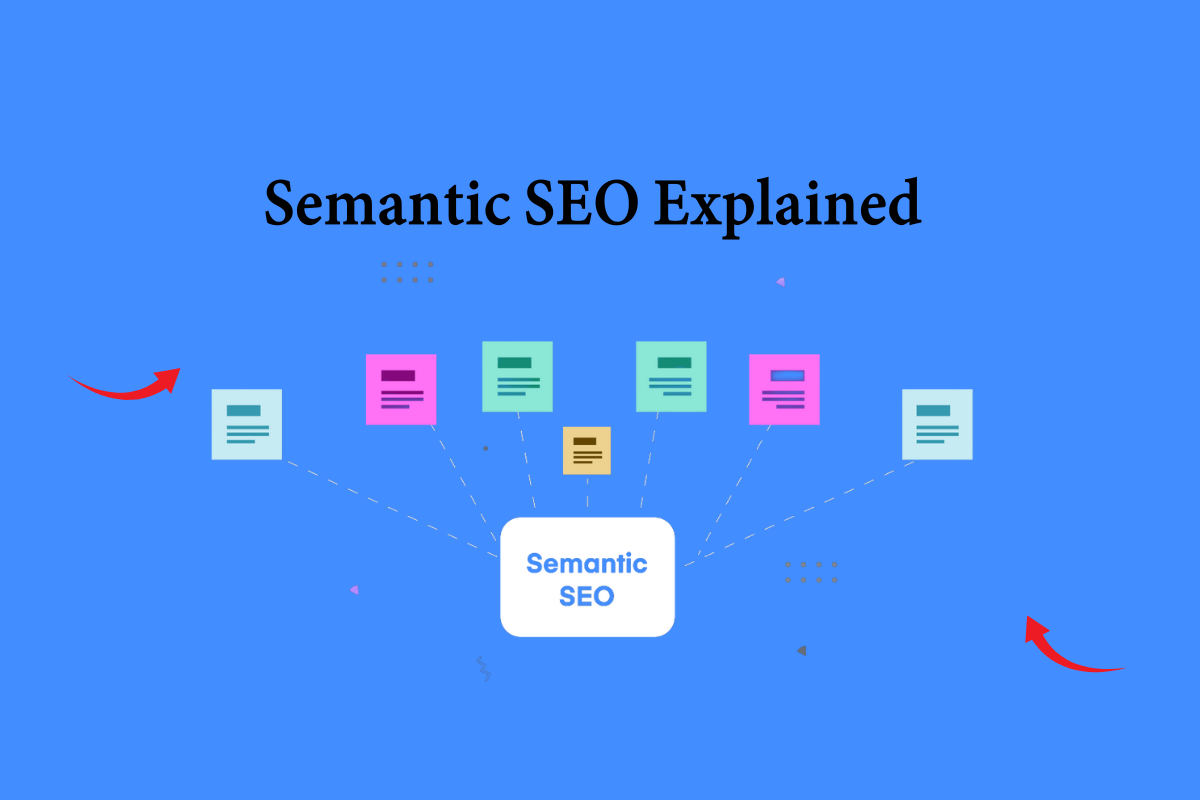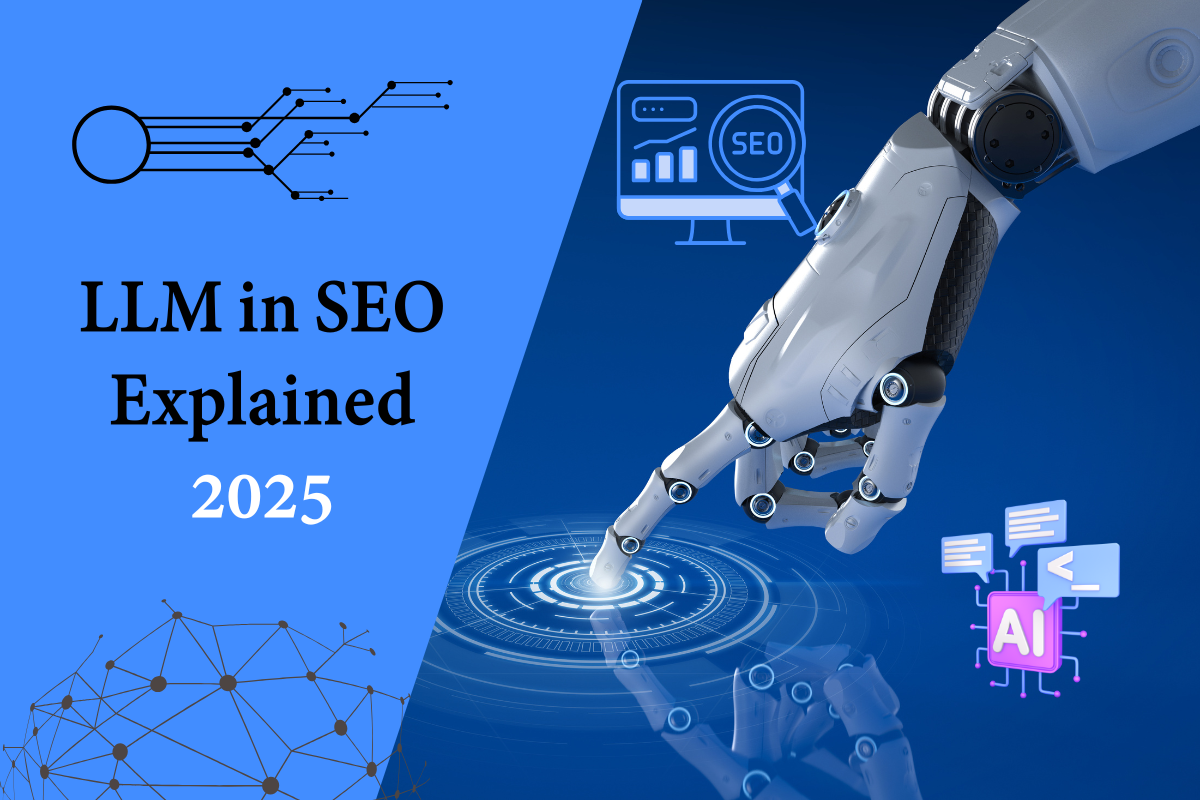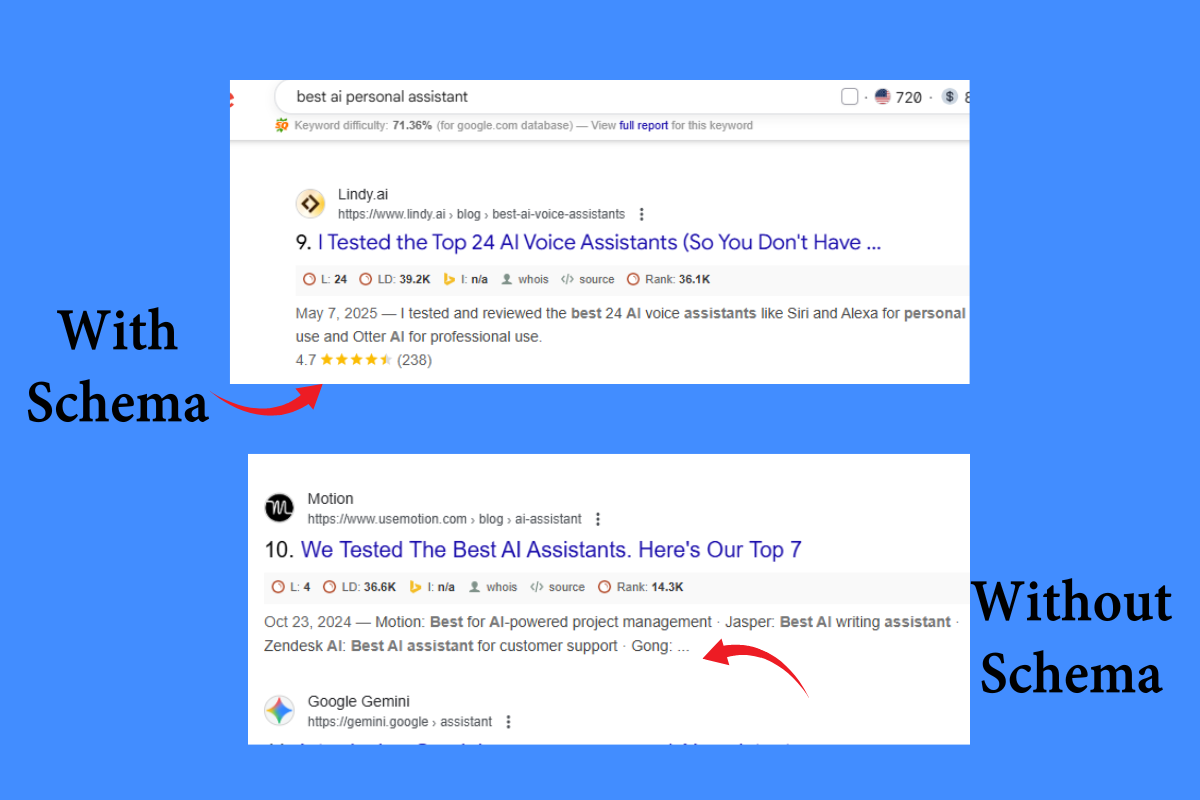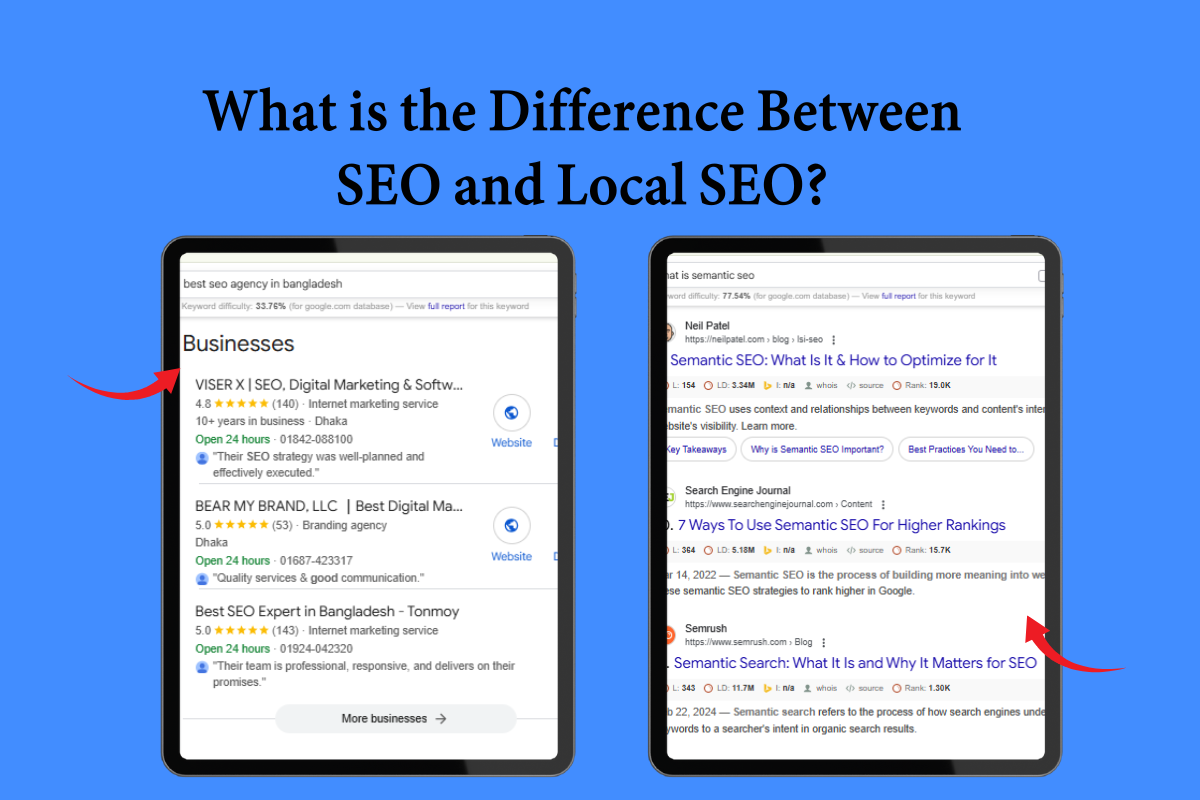

AI is changing the digital marketing landscape, and one term that keeps popping up in SEO conversations is “LLM.” But what does LLM mean in SEO, and why does it matter in 2025? LLM stands for Large Language Model, a type of AI trained on massive datasets to understand and generate human-like text. From powering chatbots to how search engines process queries, LLMs are at the heart of how information is created, delivered, and discovered online.
For SEOs, understanding LLM in SEO is no longer optional. As search engines integrate AI-driven models like Google’s SGE and OpenAI’s tools, businesses need to adapt or get left behind. This article explains what LLM means in SEO, the impact, and how marketers can use it to stay ahead.
When marketers ask, “What does LLM stand for in SEO?”, the answer is Large Language Model. In simple terms, an LLM is an advanced type of artificial intelligence trained on massive amounts of text data. These systems can read, understand, and generate human-like language, making them super powerful for tasks like answering questions, summarising content, or even creating articles.
In the world of SEO, the meaning of LLM goes beyond just technology. Search engines are increasingly using large language models to interpret queries and deliver more accurate, context-driven results. Instead of matching keywords word for word, LLMs analyse the intent behind a search and deliver results that better match what the user actually wants.
For businesses and marketers, this is big. Understanding LLM SEO meaning explains why old keyword stuffing tactics no longer work. With large language model SEO, success depends on creating high-quality, relevant content that speaks directly to user needs. In short, LLMs are changing how search engines “think,” and adapting to them is key to staying competitive online.
SEO is constantly changing with AI and LLMs. But is it really fading away? Read more in our in-depth post: Is SEO dead in 2025?
To understand the role of LLMs in SEO today, it helps to look back at how search has evolved. In the early days, search engines worked primarily on keyword-based optimization. If a page repeated a target keyword enough times, it had a good chance of ranking. While effective at first, this approach often led to low-quality, spammy results.

Google’s updates gradually shifted SEO toward semantic search, which focused on context and meaning rather than just words. Milestones like Hummingbird (2013), BERT (2019), and MUM (2021) marked key steps in helping search engines better understand natural language and user intent.
The next big leap came with AI-powered tools such as ChatGPT and Google’s Search Generative Experience (SGE). These use Large Language Models (LLMs) to process queries in a conversational way, generating more precise and user-focused answers.
This LLM evolution in search changed SEO strategies dramatically. Instead of optimizing for simple keywords, businesses now need to focus on relevance, authority, and intent. The history of SEO and LLMs shows a clear shift: from keyword matching to AI-driven understanding of human language, paving the way for the future of digital marketing.
The LLM SEO impact in 2025 is shaping how both users and businesses interact with search engines. With the rise of advanced Large Language Models, search is no longer just about finding websites—it’s about delivering personalized experiences. AI now tailors results based on user behavior, search history, and context, making every search journey unique.
Another major change is the improved interpretation of user intent. In the past, search engines often relied heavily on exact keyword matches.
Today, LLMs can understand natural, conversational queries and provide results that align with what the user really wants. For example, someone searching “best eco-friendly laptops under $1000” won’t just get product lists—they may see AI-curated recommendations and reviews designed to meet that intent.
At the same time, the rise of zero-click searches and direct AI-generated answers is reshaping visibility. Instead of always clicking through to a site, users may get their answers directly from Google’s SGE or an AI assistant. While this can reduce traffic for some websites, it also highlights the need to optimize content so that it’s chosen as the source behind those AI responses.
In short, SEO 2025 with LLMs is about adapting to a world where AI decides what content surfaces. Businesses that focus on clarity, authority, and trust will have a better chance of being referenced and featured in these new search experiences
When comparing traditional SEO vs LLM SEO, the differences show how much the industry has evolved. Traditional SEO has long relied on tactics such as keyword optimization, backlinks, and technical improvements like site speed and mobile responsiveness. These strategies remain important because they help search engines crawl and rank websites effectively.
However, with the rise of Large Language Models (LLMs), SEO now involves more than just technical foundations. LLM SEO emphasizes context, semantic understanding, and conversational queries. Instead of targeting single keywords, marketers must create content that answers broader questions, anticipates variations of user intent, and provides value in natural, human-like language.
For example, while traditional SEO might focus on ranking for “best running shoes,” LLM-driven search is more likely to handle complex queries such as “What are the best running shoes for beginners with flat feet?” and deliver conversational, intent-matched answers.
The reality is that businesses can’t afford to abandon either approach. Backlinks, site performance, and metadata remain critical, but so does adapting content for AI-powered search. The smartest SEO strategies with LLM blend both worlds: technical SEO to ensure discoverability, and LLM-friendly content to ensure relevance in an era of conversational, intent-based search.
Large Language Models aren’t just theoretical—they’re already shaping how marketers work. Here are some of the most practical applications of LLMs in SEO today:
LLM-powered tools can generate topic outlines, suggest keyword clusters, and even draft copy. This helps teams produce high-quality content faster while ensuring it aligns with search intent.
Instead of guessing what users mean, LLMs analyze patterns in queries to uncover the true intent. This allows marketers to create content that directly addresses user needs, whether they want information, comparisons, or products.
Traditional keyword research tools focus on search volume and competition. With AI insights, LLMs identify related queries, conversational phrases, and long-tail opportunities that humans might overlook.
LLMs also enhance on-site engagement through chatbots and content assistants. These tools can guide visitors, answer questions instantly, and provide personalized recommendations, keeping users engaged longer.
In short, the practical power of LLMs in SEO lies in combining efficiency with intelligence. They don’t replace marketers but give them sharper tools to create relevant, user-focused strategies.
While Large Language Models bring powerful opportunities, they also introduce new AI SEO challenges that marketers need to manage carefully.
AI-generated content can sometimes feel repetitive or generic. Without a human touch, it may fail to stand out or connect with audiences.
Google has made it clear that content created with AI is not inherently penalized, but it must align with EEAT principles (Experience, Expertise, Authoritativeness, Trustworthiness). This means human oversight and credibility remain essential.
Depending too heavily on LLMs can lead to errors, off-topic responses, or missed nuances. Human editing is necessary to ensure accuracy, originality, and brand consistency.
LLMs can sometimes generate factually incorrect or biased outputs. If left unchecked, this poses risks to both brand reputation and user trust.
The biggest risks of LLM in SEO come not from the technology itself, but from how it’s used. Businesses that balance AI efficiency with human creativity and oversight will avoid these pitfalls and get the most value from LLM-driven strategies.
Adapting to an AI-driven search landscape means updating strategies with LLM SEO best practices that keep your content relevant and trustworthy.
Google increasingly rewards content that demonstrates real expertise and reliability. Adding author bios, citing credible sources, and showcasing experience builds trust with both users and algorithms.
AI tools can help with efficiency, but originality matters most. Always edit and fact-check AI-assisted content to ensure it reflects your brand’s voice and provides unique value.
With LLMs interpreting natural language, long-tail and conversational keywords are more powerful than ever. Structuring content around questions and answers improves chances of appearing in AI-driven search responses.
Structured data helps search engines—and LLMs—understand the context of your content. Adding schema markup improves visibility in rich snippets, featured results, and AI-generated answers.
AI can generate outlines, ideas, or drafts, but human creativity ensures storytelling, authenticity, and emotional connection. The strongest SEO strategies blend both.
By applying these future-proof SEO practices, businesses can stay competitive in an era where LLMs shape search. The goal is not to fight AI but to work alongside it—using its strengths while keeping content authentic, accurate, and human-centered.
Looking forward, the future of SEO with LLM will be about how search engines continue to put AI into everyday life. As LLM-driven tools like Google’s Search Generative Experience and AI assistants get more popular, users will expect more conversational, personalized, and accurate answers. Search is moving away from keyword matching to a more human-like dialogue between humans and technology.
So SEO professionals need to adapt. Staying static is no longer an option – marketers need to refine their content, embrace semantic optimization, and monitor AI-driven changes in search behavior.
But even in an AI-dominated era, human creativity is irreplaceable. Authentic storytelling, unique perspectives, and brand voice are things no algorithm can fully replicate. Businesses that blend AI efficiency with human originality will stand out.
In short, AI SEO 2025 and beyond won’t kill SEO. Instead, LLMs will redefine it, shifting the focus from mechanical optimization to user-first content that balances technology with trust. SEO isn’t dead, it’s entering a smarter, more dynamic chapter.
In 2025, knowing that LLM stands for Large Language Model is key to modern SEO. These AI-powered systems are changing how search engines interpret queries, assess content, and deliver answers to users. SEO isn’t going away; it’s evolving. Traditional strategies like keywords, backlinks, and technical optimization are still important, but now work alongside AI-driven approaches that prioritize user intent, semantic relevance, and high-quality content.
Businesses that adopt AI-powered search while maintaining authentic human-verified content will be best placed to succeed. Staying adaptable, monitoring AI trends, and using tools that help with LLM optimization will give companies an edge.
To stay ahead, start exploring AI-powered SEO tools, experiment with conversational content, and focus on providing value that resonates with real users. SEO in the age of LLMs is a balance of technology and human creativity, and those who master it will thrive.
LLM stands for Large Language Model. It’s an AI system trained on massive datasets to understand and generate human-like text. In SEO, LLMs help search engines understand queries, provide context-driven answers, and influence how content is shown to users.
LLMs rank content that matches user intent and context, not just keywords. They help search engines show more relevant, conversational, and accurate results. Optimizing for LLM-driven search means focusing on semantic SEO, quality content, and structured data to get visible.
No. Traditional SEO elements like backlinks, technical optimization, and metadata are still important. LLMs complement these by making content more relevant and understanding user intent. The best strategy is to combine traditional SEO with LLM-focused content optimization.
AI-generated content can be useful, but must be human-verified and original. Google judges content based on EEAT (Experience, Expertise, Authority, Trustworthiness). Purely AI content without oversight may lack credibility and won’t rank well.
Businesses should focus on semantic SEO, long-tail keywords, conversational content, and structured data. Balancing AI efficiency with human creativity ensures content aligns with user intent and is trusted by both readers and search engines.
Traditional SEO is about keywords, backlinks, and technical factors. LLM SEO is about context, semantic understanding, and conversational queries to meet user intent better. Combining both yields the best results.
Yes, LLMs are the future of search. They enable AI-powered, intent-driven results, conversational answers, and personalized experiences. While they won’t replace SEO, they are redefining how content is found online.



Welcome to Scope Signal, your trusted destination for clear, practical, and research-driven technology content.
At Scope Signal, we don’t just write about tech — we break it down, analyze it, and explain it in a way that actually makes sense. Whether you’re a beginner trying to understand a new tool or a professional looking for in-depth insights, our goal is to make technology simple, useful, and actionable.